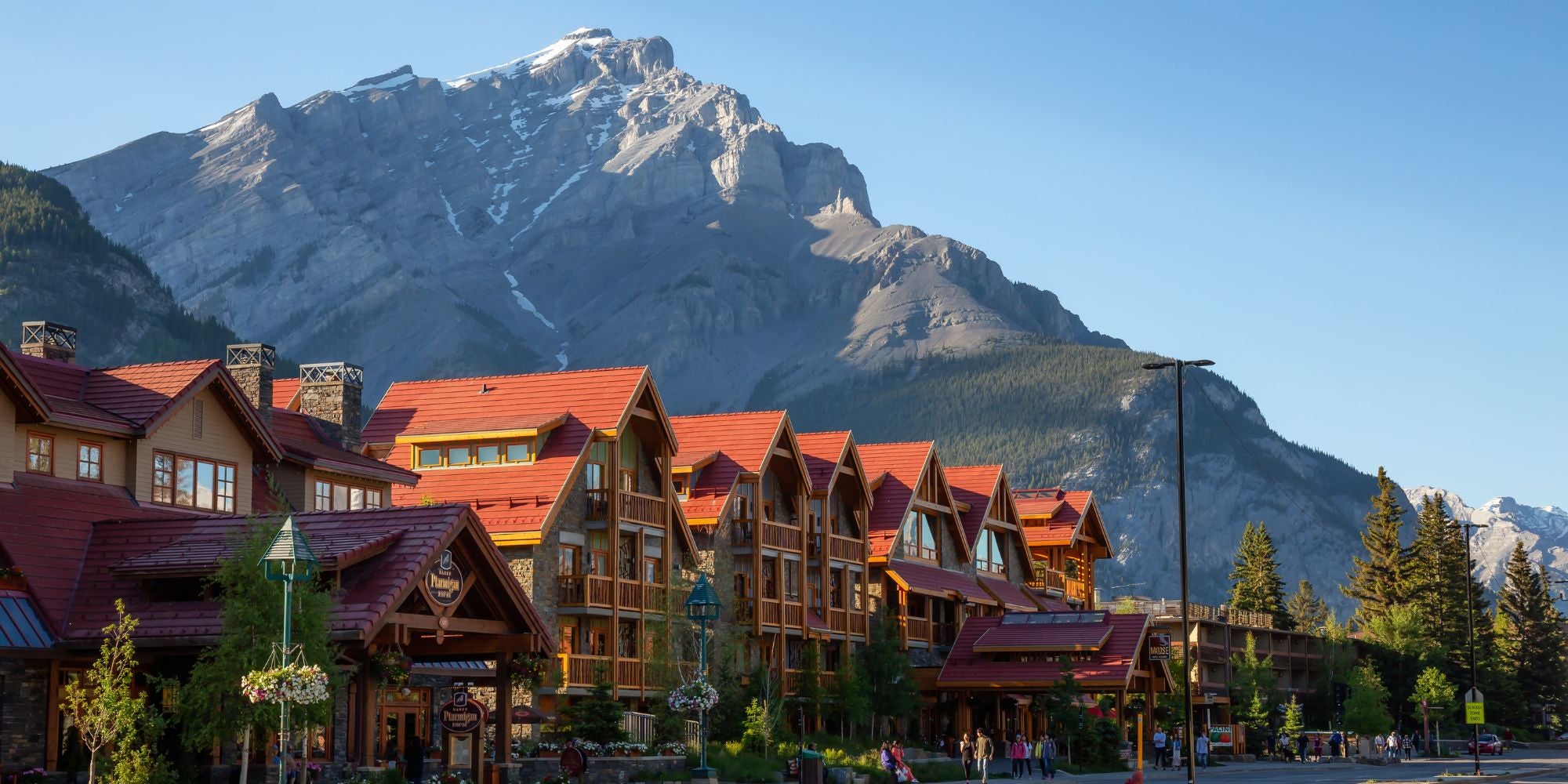
If you are planning to visit the Banff area and aren't sure what to expect when it comes to altitude sickness, here are the top tips that will make your visit much more enjoyable to avoid Banff altitude sickness.
Banff altitude sits at an elevation of 4,537 feet (1,383 meters) above sea level. As a resort town in Alberta, it's considered the highest town in Canada located within Banff National Park.
Not only is the altitude of Banff high, it's just the baseline of elevation for the area. The mountains and ski resorts in the surrounding areas exceed the altitude of the town of Banff.
Called the Big 3 Ski Resorts, there's three ski mountains with higher top elevations that include:
Banff, while a beautiful place to stay, you should be well prepared for the high altitude risks and altitude sickness.
By the categorization of mountain medicine based on oxygen levels, high altitude is considered 4,900–11,500 feet (1,500–3,500 m).²
At 4,537 feet high, Banff is just below the high altitude region. However, it's high enough in altitude to still have a risk of experiencing mild altitude symptoms and is part of the Rocky Mountain range.
A height of 8,000 feet or higher is most popularly stated to carry a high risk of altitude sickness.¹
That being said, lower altitudes can still cause altitude sickness, while risk levels vary based many factors such as health, age, and previous high altitude exposure.
For example, in our city of Denver at 5,280 feet high, many visitors can still experience mild symptoms of altitude sickness. With Banff altitude close to Denver altitude and both part of the Rocky Mountains, this proves that you can still be at risk for altitude sickness.
Altitude sickness is caused mainly due to lower oxygen levels at high elevations, including all the physiological stress put on the body.
Also known as acute mountain sickness, these describe the effects of high altitude on the body. People may experience shortness of breath, dizziness, and nausea.
Altitude sickness symptoms:
These are the altitude sickness symptoms you should look out for when visiting Banff.
While Banff has is a beautiful place where people can come to experience mountain life such as skiing and hiking, the elevation of Banff can still cause altitude sickness in some visitors.
From headaches, shortness of breath, and feelings of malaise ━ altitude sickness can really set your Banff trip back.
As a company based out of the Rocky Mountains, we'll share our top tips with you to help avoid Banff altitude sickness.
Here's 3 tips to avoid Banff altitude sickness:
This concludes our best, science-backed tips to avoid Banff altitude sickness.

Zaca is a favorite supplement because it’s easy to take, effective, and fast acting. Zaca’s super concentrated formula is designed to power you while traveling and at high altitudes. Made to fortify your body with glutathione and glutamine, amoung with other supporting nutrients to help you feel better. Rehydrate, replenish, and recover faster with these chewables. Simply take 1-2 packets a day, before and during your trip. Try Zaca Chewables today and power your mountain trips.
SOURCES
1. Altitude sickness
https://www.nhs.uk/conditions/altitude-sickness/
2. Effects of high altitude on humans
https://en.wikipedia.org/wiki/Effects_of_high_altitude_on_humans
3. Effect of high altitude (7,620 m) exposure on glutathione
https://pubmed.ncbi.nlm.nih.gov/11320641/
4. Glutamine as an Anti-Fatigue Amino Acid in Sports Nutrition
https://www.ncbi.nlm.nih.gov/pmc/articles/PMC6520936/
5. The Possible Importance of Glutamine Supplementation to Mood and Cognition in Hypoxia from High Altitude
https://www.ncbi.nlm.nih.gov/pmc/articles/PMC7760805/
6. Banff, Alberta
https://en.wikipedia.org/wiki/Banff,_Alberta
Copy the coupon code & use it at checkout